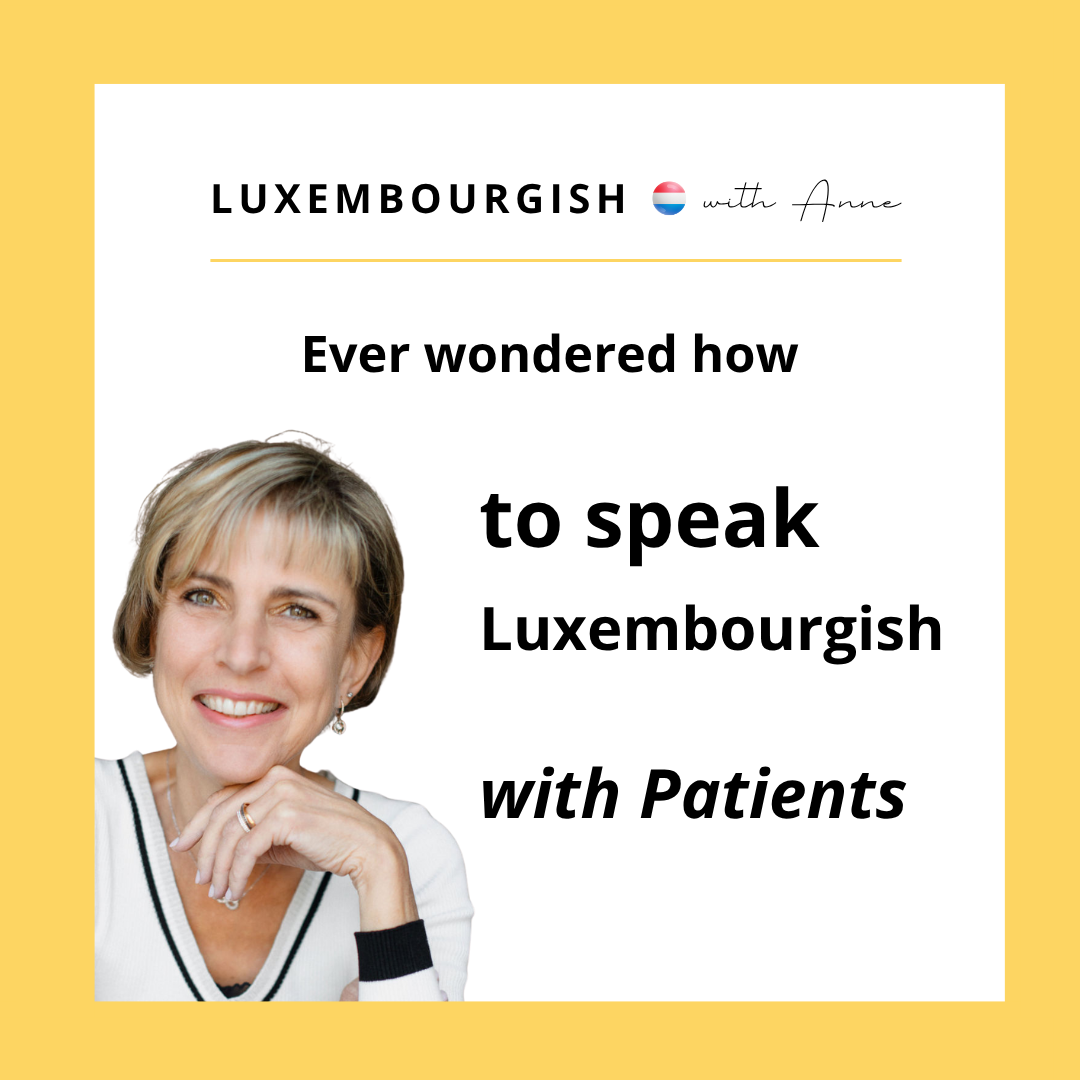What’s the best way to learn Luxembourgish vocabulary?
How can you learn more words?
If only I could give the ultimate answer to that question. It’s a question that I get asked again and again! There is no single best way. There is no quick solution, but I do have 5 tips or recommendations in this lesson that will help you to improve your Luxembourgish vocabulary.
First of all you need to find the best way for you and to do that you need to take a few moments to think about YOU. Think about your interests. Do you like reading? Watching the news? How do you like to learn, inside or outside, in a group or alone? What type of learner are you? How do you best take in information? And what’s your schedule like? When can you study? On the train or with your kids?
Use this information to find the opportunities to learn and enjoy Luxembourgish. The truth is that to successfully learn new vocabulary, you need to create really good study habits. You need to keep it interesting and you need to make sure that you’re having fun! It’s something that you need to be doing every day so you need to find a way to involve things that you love to do.
Consistency is key when you’re learning new words. You can’t just learn them once and magically they’re kept inside your head forever. You need to hear them again and again. Understand how they’re used in different, in word families. You need to use them yourself. The truth is that we all learn differently.
Here are some different tools and techniques that you can use to improve your vocabulary. You might not like all of them but you will definitely enjoy some of them and hopefully you can make them part of your daily or weekly routine. And if you’ve got any of your own suggestions about ways to learn vocabulary, then add them to the comments below!
Tip 1
So, the first suggestion or the first tip is get better at studying new words. And you can do this lots of different ways. If you don’t like to carry around a notebook, then find a way that works for you. There are lots of apps that can help you to do this – apps on your smartphone. And it’s just as easy to make notes there. Your phone is great because it’s always with you but if you prefer to keep a notebook, that’s just as good.
So neat ways of doing this are creating lists or by creating vocabulary maps. However, you do it, you need to keep updating it and you need to keep building on this list and don’t just write the word down. Go deeper! If it’s a noun, learn whether it’s masculine, feminine or neuter. Learn the prefixes or suffixes so that you can build on those words.
Tip 2
Number two. When you do learn new words, don’t just learn them on their own. Learn them with the words that they are often used with. These are called collocations. Two or more Luxembourgish words that are often said together or used together. They sound right because native speakers often use them together.
For example, ech fuere Vëlo. (and not ech maache Vëlo). Or instead of memorising a word, for example ausmaachen, learn the phrase “e Rendez-Vous ausmaachen” or “de Computer ausmaachen” or “d’Luucht ausmaachen”.
You can learn hundreds of new individual words but you’ll be frustrated if you can’t put them together in a sentence that sounds correct and natural. When you learn words in groups, you’re learning the words with the verb, the nouns, the prepositions that they are commonly used with so you’ll sound much more natural when you speak.
Tip 3
The next tip. Get better at using an online dictionary. Online dictionaries offer so many ways to practise and learn new Luxembourgish vocabulary.
Let’s look at the online dictionary Lëtzebuerger Online Dictionnaire . When you look up the word ausmaachen, for example, you can read the meaning, you can listen to the pronunciation, you can learn the different verb forms. You can read lots of example sentences that show how this word is used. You can also learn synonyms and collocations. I recommend this online dictionary which I use on a daily basis.
Tip 4
Another tip – my favourite tip – is to describe the world around you, what’s happening around you. If you like using a dictionary to learn new vocabulary, getting into the habit of describing things that are happening around you in Luxembourgish is a really great way to study. When you’re unsure of words, look them up. It will help you to fill in the gaps in your vocabulary.
So for example, when you’re at your local supermarket, ask yourself, “Do I remember the names for everything that’s in the fridge?” or “How can I describe the woman waiting in line?” or “Do I know the Luxembourgish names of all of these vegetables?”
When you can’t think of a word, you stop and you look it up. Understand how it’s used, practise it and then use it again next time you’re at the supermarket. You can also do it on your way to work on the bus, as you’re going pas things you can think of the vocabulary and try and fill in the gaps when you don’t know how to describe it or explain it.
Tip 5
If you are confident enough, speak and practise being in conversations. By the time you’ve reached level A2, you already have enough vocabulary in you, you can communicate what you want.
The message might not be perfect but it’s enough and it’s at this point that practising real conversations is going to catapult your Luxembourgish skills and that means push them much further than if you just keep doing what you’re doing. In conversations, you’re developing core language skills simultaneously. You’re listening, you’re asking questions, you’re learning new vocabulary and context. You’re pushing yourself to find new ways to express your ideas. And if you’re now expressing yourself clearly enough, you have to find a new way of explaining yourself. And all of this is happening at once, there’s lots of pressure, there is no better way to build your language skills than immersing yourself inside an Luxembourgish conversation.
There are so many different ways that you can do this. You can do it online, via Skype for example.
Online learning is particularly recommended for Luxembourgish conversation and Sproochentest preparation. It is one of the best ways to learn to speak Luxembourgish FASTER , because the stress is on the oral skills.
I hope you find this helpful!





